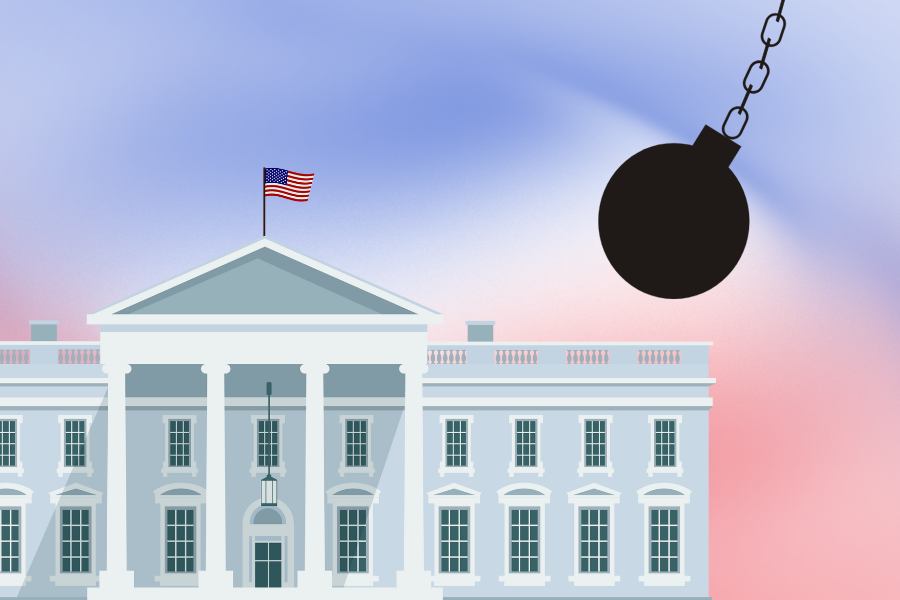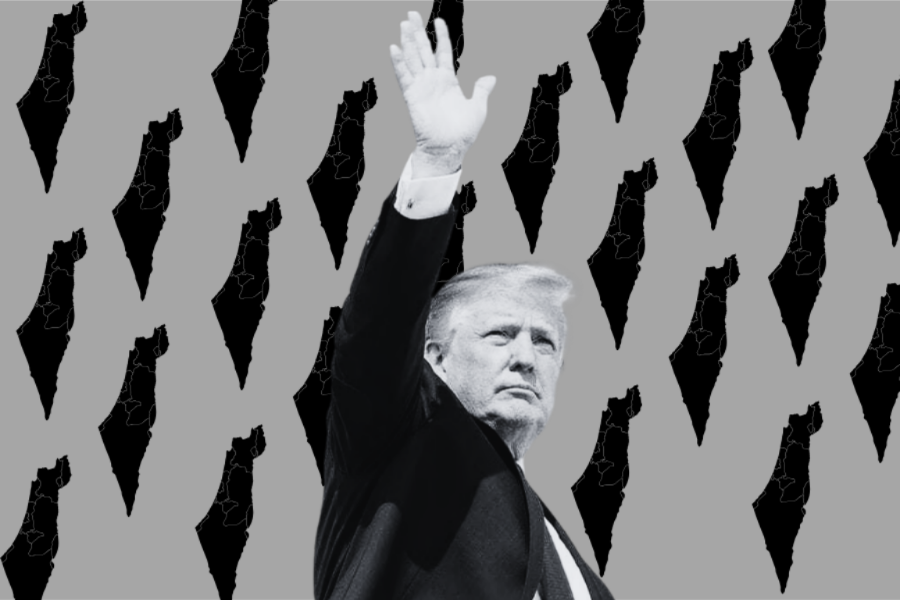President Donald Trump announced on TruthSocial that, under his great financial wisdom and steadfast leadership, he has once again spared the good American taxpayers from yet another hair-brained, budget-consuming, debt-building government expense — his new ballroom.
For once, it’s good to know we’re saving money. Whose money are we actually spending, though? Rest assured that while the renovations look expensive, drastic, and generally abhorred, we’re not footing the bill.
As Trump said, “The White House Ballroom is being privately funded by many generous Patriots, Great American Companies, and yours truly.”
The truth served as a confirmation to his constituents that this wasn’t a ploy to try and rob them of their hard-earned taxpayer dollars, but rather a gracious gift or act of friendship. Just like that super neat jet from Qatar, or when all of Trump’s corporate buddies all piled in for his inauguration photos, standing directly behind the commander-in-chief. Trump’s chumps even had a party together last month at a dinner event for tech CEO’s, after lobbying Trump to give them about $75 billion in tax breaks.
I’ll admit, all of this gift-giving and ass-kissing can make your head spin at first glance, but you’ll understand it all once you understand one thing: the United States government operates on a for-profit basis.
Take a look back to 1954, during the Guatemalan Coup D’État. Before democratically elected Guatemalan President Jacobo Arbenz Guzmán took office, the United Fruit Company — an American Company – owned 42% of the fertile, farmable land in Guatemala, and under the guidance of Dictator Jorge Ubico, the majority of landless Mayans were forced to work on these massive plantations or on government projects with no involvement or impairment by the U.S. government; all in the interest of keeping money flowing. To the American government, how you governed your country matters much less than whether your currency was backed by something.
When Guzman took office, he was far less satisfied with how the UFCO operated and treated his people than his predecessor. He issued a decree that broke up the land occupied by the monopoly and distributed the land back to the people, a move that the fruit company deemed a hazard to their profits.
Guzman offered the United Fruit Company over $1.2 million in restitution, an amount that was recorded to be the company’s tax value, according to UFCO financials. UFCO didn’t like this amount and demanded $16 million, and when demands weren’t met, executives turned to some of their former partners at an old law firm: John Foster & Allen Dulles, the Secretary of State, and the CIA director, respectively.
The Dulles Brothers went to President Eisenhower, and Eisenhower gave the go-ahead for a state-sponsored coup on the basis that what Guatemala did was communism, and everyone lived happily ever after – and got some sweet kickbacks, too.
So what does the story of the Banana Wars have to do with a ballroom? Look at it this way: the United States is operating in a way that panders to large companies by loosening regulations and rules about sustainability, labor, environmental protection and other essential protections and restrictions; all in the interest of big companies’ money.
It makes sense why huge companies are now getting substantial tax breaks and loosened restrictions, and it makes sense that, at the same time, those cuts come at a cost. If Trump scratches their back… they will give him money since nobody wants to touch him. You get the idea: work with conglomerates, conglomerates work with you.
Take into account the recent news with Qatar’s new air force installation, defense guarantee, and the gifted plane, and the picture starts to come together: When you want to build a home — or an air force base — on someone’s land, you’ll need to pay rent to the landlord. If you want a guarantee that the U.S. will kick ass and take names on your behalf should you need them to, there’s gotta be something in it for us. Nothing is for free; all is for profit. Just because we aren’t funding this project doesn’t mean we didn’t contribute somehow.
This brings up a strange question: now armed with the knowledge that while this bastardization of the People’s House is, for once, not coming out of our pockets yet, would it be better to know this monstrosity of a dancefloor was funded by your blood, sweat and tears? Or is it better to know it was done at the expense of another’s blood money?
Either way, somebody isn’t gonna get their security deposit back.








